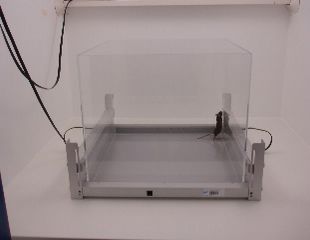Scientists from the Heinrich-Pette-Institute Hamburg and the University of Veterinary Medicine Hannover in collaboration with the German Mouse Clinic and several other institutes showed in this study that maternal Zika virus (ZIKV) infection during early development also affects the supposedly healthy offspring at later age. The findings were recently published in ´Nature Microbiology´.
In 2015, maternal ZIKV infection during pregnancy was associated with fetal loss, spontaneous abortions and neurological disorders, such as microcephaly in neonates, but most of the newborns (~ 90%) showed no manifestations at birth. One year after the outbreak of the ZIKV, the WHO called for the long-term consequences of a ZIKV infection to be investigated. This study provides new insights into the impact of the ZIKV epidemic on the next generation. The data support the hypothesis that maternal ZIKV infection during early embryogenesis impairs the fetal development in the uterus. Apparently, clinically healthy neonates may exhibit neuronal alterations later in life.
In order to study these potential long-term effects, an immunocompetent mouse model was established that served as a model for further investigations. The authors observed that the dose of ZIKV infection applied to pregnant mice plays an important role. High doses led to increased miscarriages, but with a low ZIKV infection dose, the offspring were phenotypically inconspicuous. Further analyses of these animals led to first indications of long-term effects, which hint to neurodevelopmental defects causing behavioral abnormalities in the adult animal. The authors showed in addition that maternal and viral factors seem to be responsible for the impaired development of the nervous system. Male offspring of low dose infected mothers showed higher testosterone levels compared to controls. In addition, learning and memory deficits manifested mainly in male offspring and this finding corresponds with a higher incidence of immature neurons in several hippocampus regions than in female offspring of infected mice. These results indicate that notably male offspring born to mildly ZIKV-infected mice are at risk of developing neurocognitive disorders in adulthood.
Stephanie Stanelle-Bertram, Kerstin Walendy-Gnirß, Thomas Speiseder, Swantje Thiele, Ivy Asantewaa Asante, Carola Dreier, Nancy Mounogou Kouassi, Annette Preuß, Gundula Pilnitz-Stolze, Ursula Müller, Stefanie Thanisch, Melanie Richter, Robin Scharrenberg, Vanessa Kraus, Ronja Dörk, Lynn Schau, Vanessa Herder, Ingo Gerhauser, Vanessa Maria Pfankuche, Christopher Käufer, Inken Waltl, Thais Moraes, Julie Sellau, Stefan Hoenow, Jonas Schmidt-Chanasit, Stephanie Jansen, Benjamin Schattling, Harald Ittrich, Udo Bartsch, Thomas Renné, Ralf Bartenschlager, Petra Arck, Daniel Cadar, Manuel A. Friese, Olli Vapalahti, Hanna Lotter, Sany Benites, Lane Rolling, Martin Gabriel, Wolfgang Baumgärtner, Fabio Morellini, Sabine M. Hölter, Oana Amarie, Helmut Fuchs, Martin Hrabe de Angelis, Wolfgang Löscher, Froylan Calderon de Anda and Gülsah Gabriel (2018). Male offspring born to mildly ZIKV-infected mice are at risk of developing neurocognitive disorders in adulthood. Nature Microbiology, 2018 Sept 10.
Further information:


